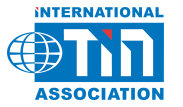European Union’s Conflict Minerals Regulation 2017
Regulation (EU) 2017/821 of 17 May 2017 brings into force supply chain due diligence obligations for EU importers of tin, tantalum and tungsten and their ores originating from conflict-affected and high-risk areas (CAHRA’s) which are defined as; ‘areas in a state of armed conflict or fragile post-conflict as well as areas witnessing weak or non-existent governance and security, such as failed states, and widespread and systematic violations of international law, including human rights abuses’.
The objective is to encourage responsible sourcing by companies in the EU, although it only applies mandatory actions to upstream and partial downstream importers, leaving due diligence by downstream product manufacturers and importers voluntary. The main requirements will apply from 1 January 2021 and are based around the OECD Guidance although with a different CAHRA definition.
Importers of the products in the table below will need to report to the authorities the source of their metals, provide an assessment of the CAHRA status of the source, and a relevant audit report. Some expectations of this Regulation would be automatically accepted as fulfilled in the case of companies who are participants in an industry programme such as ITSCI, when aligned with the OECD Guidance.
For further information or to discuss participation please contact [email protected]


